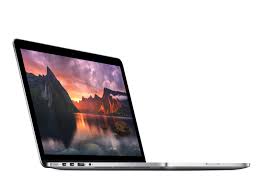The latest Apple Silicon MacBook offers incredible all-day battery life in optimal conditions. However, battery health inevitably declines with age, so how do you maintain that performance in the long term? Here are a few things you can do, check them out!

Keep Optimized Charging On
iPhones, iPads, and MacBooks can take advantage of a feature called Optimized Charging to monitor your usage patterns and adjust charging behavior accordingly. The optimal balance point for lithium batteries is between 40% and 80%. Charging to 100% or letting your battery percentage drop too low is considered bad for the battery. A fully charged battery stores a higher voltage, which puts more stress on the battery.
You can find this setting under System Preferences > Battery > Battery. Once your Mac learns your daily habits, it waits for your device to be fully charged so the battery spends less time at 100%.
If you charge your laptop overnight and go to work every day at 8am, your MacBook will wait for the last 20% or so of the top-up. If for some reason you happen to leave an hour early, you may find that your battery is not fully charged. The same applies to iPhone and iPad.
Don’t leave your MacBook plugged in all the time
It’s impossible to “overcharge” a MacBook battery while it’s plugged into a power source. If you keep it plugged in, the battery won’t overheat or damage any other components. The one exception is if you start noticing bulging batteries, a serious problem that can lead to injury.
The aforementioned optimized charging feature can keep your laptop plugged in, but it’s not foolproof. If your laptop never leaves your desk, or your schedule is particularly erratic, macOS may not be able to determine when to delay charging the battery.
That’s why it’s best not to leave the machine on the charger all the time. Ideally, you’ll want to drop the battery down to 40% before charging it to around 80% for best results. This ensures that the battery is not overstressed by the high pressure required to reach 90% or 100%.
Avoid exposing your MacBook to extreme temperatures
Generally speaking, extreme temperatures are bad for your MacBook. Extreme heat is notoriously bad for technology, and researchers have found that extreme cold can crack the metal used in lithium batteries, separating the cathode from the rest of the battery. Storing the cathode at sub-freezing temperatures “caused the battery to lose up to 5% of its capacity after 100 charges compared to batteries stored at higher temperatures.”
The solution is to make sure your laptop isn’t exposed to extreme temperatures. Don’t leave it in the car overnight in winter. MacBooks are not ruggedized laptops and are not designed for extreme weather conditions.
Consider using AlDente Pro to manage charging
If you’re really keen on preserving your MacBook battery for as long as possible, the free app AlDente might be of interest to you. The app allows you to set charging limits so that your MacBook stops falling below maximum capacity at a percentage of your choosing. By default, this is 80%.
The free version only has a charge limiter and discharge mode, allowing the MacBook to run on battery even when plugged in. This allows you to discharge the battery to a “healthier” percentage without removing the power connector.
AlDente only works with macOS Big Sur or later, and works best on most MacBooks produced in 2016 or later. Earlier laptops lost support for some features, but most post-2013 models support the all-important charge limiter feature.
Check your MacBook battery health
If you want to know the state of your battery, you can go to System Preferences > Battery > Battery and click on “Battery Health…”.
To see a more detailed look, including charge cycle counts, click the Apple logo in the upper-left corner of the screen, then click About This Mac, then click System Report on the Overview tab. Scroll down to “Power” and under “Health Information” you should be able to see the battery’s cycle count.
>>>>>>>>>>>Apple battery
Thanks for reading, hope it helps!
Friendly reminder: If you need to replace the battery of your device, this battery store will be a good choice: www.batteryforpc.co.uk
